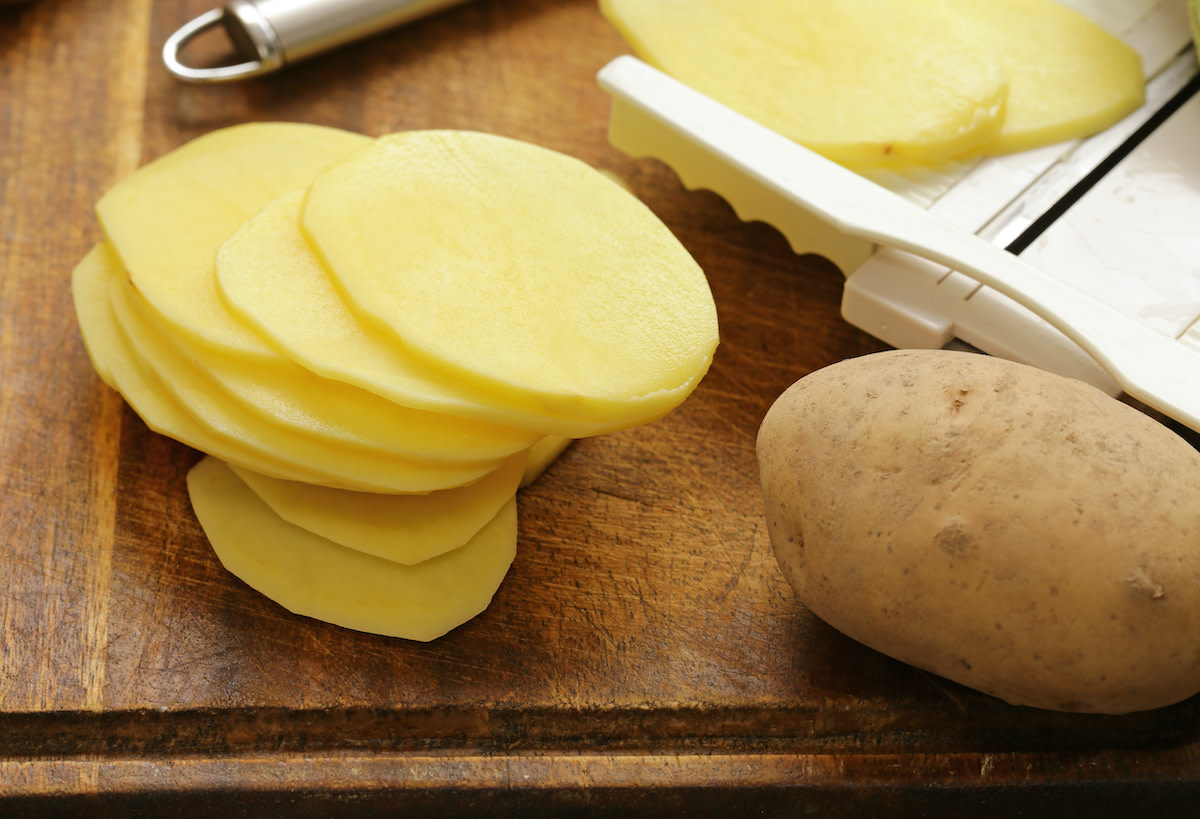How to Keep Peeled Potatoes From Turning Brown: 3 Methods
Written by MasterClass
Last updated: Jan 21, 2022 • 2 min read
Once you peel potatoes, they will eventually become discolored unless you take steps to prevent this. Learn how to keep peeled potatoes from turning brown before you can use them in your recipes.
Learn From the Best
What Are Peeled Potatoes?
Peeled potatoes are potatoes from which you’ve removed the skins with a vegetable peeler or paring knife. Peeling is one of the many ways to prep potatoes for hash browns, mashed potatoes, latkes (potato pancakes), potato salad, french fries, potato gratin, soups, and other dishes involving cooked potatoes.
Why Do Potatoes Turn Brown?
As soon as you leave out peeled or cut potatoes, the oxidation process begins and the potatoes turn brown. Oxidation is a chemical reaction between the starches and sugars in the potato and the air that does not impact the edibility of the potato but does change its color.
In general, you want to peel potatoes just before beginning your potato recipe; otherwise, the raw potatoes will start to discolor. You can peel raw potatoes up to a day ahead—but no earlier than that—and store them in a bowl of cold water in the refrigerator until you’re ready to use them. Brown discoloration is only a concern for white spuds and similar types of potatoes, such as Yukon Golds and russet potatoes, but not for sweet potatoes.
How to Keep Peeled Potatoes From Turning Brown
The discoloration process happens quickly to potatoes once you peel or cut them, but there are ways you can prevent this. After you have sliced up the potatoes on a cutting board and discarded the potato skins, try using one of these methods to prevent oxidation:
- Apply an acid to the potatoes. Try adding an acidic food, such as lemon juice or vinegar to the whole, diced, or sliced potatoes. Toss everything together. Alternatively, add acid to a bowl of water and then add the potatoes. This process is similar to tossing apples with lemon juice in preparation for apple pie. The lemon juice or vinegar won’t make the potatoes taste like lemon, but the acidic liquid will alter the pH of the potatoes to stop oxidation.
- Cover the potatoes in water. Soak potatoes in a bowl of cold water as you finish peeling or cutting them. Cold water slows down the oxidation process but won’t stop it completely. This method is a particularly good option if you plan to cook the potatoes immediately after you finish peeling or cutting them. Cold water is the best option, but room temperature water will also work in the short term.
- Place the potatoes in salted water. Try dunking your potato slices in salted water as the combination of water and salt keeps oxidation at bay. For every gallon of water, add about one teaspoon of salt to a large bowl or stockpot. Add the potatoes and then cover the bowl with plastic wrap. Place everything in the refrigerator.
Want to Learn More About Cooking?
Become a better chef with the MasterClass Annual Membership. Gain access to exclusive video lessons taught by the world’s best, including Gordon Ramsay, Gabriela Cámara, Chef Thomas Keller, Dominique Ansel, Yotam Ottolenghi, Alice Waters, and more.
